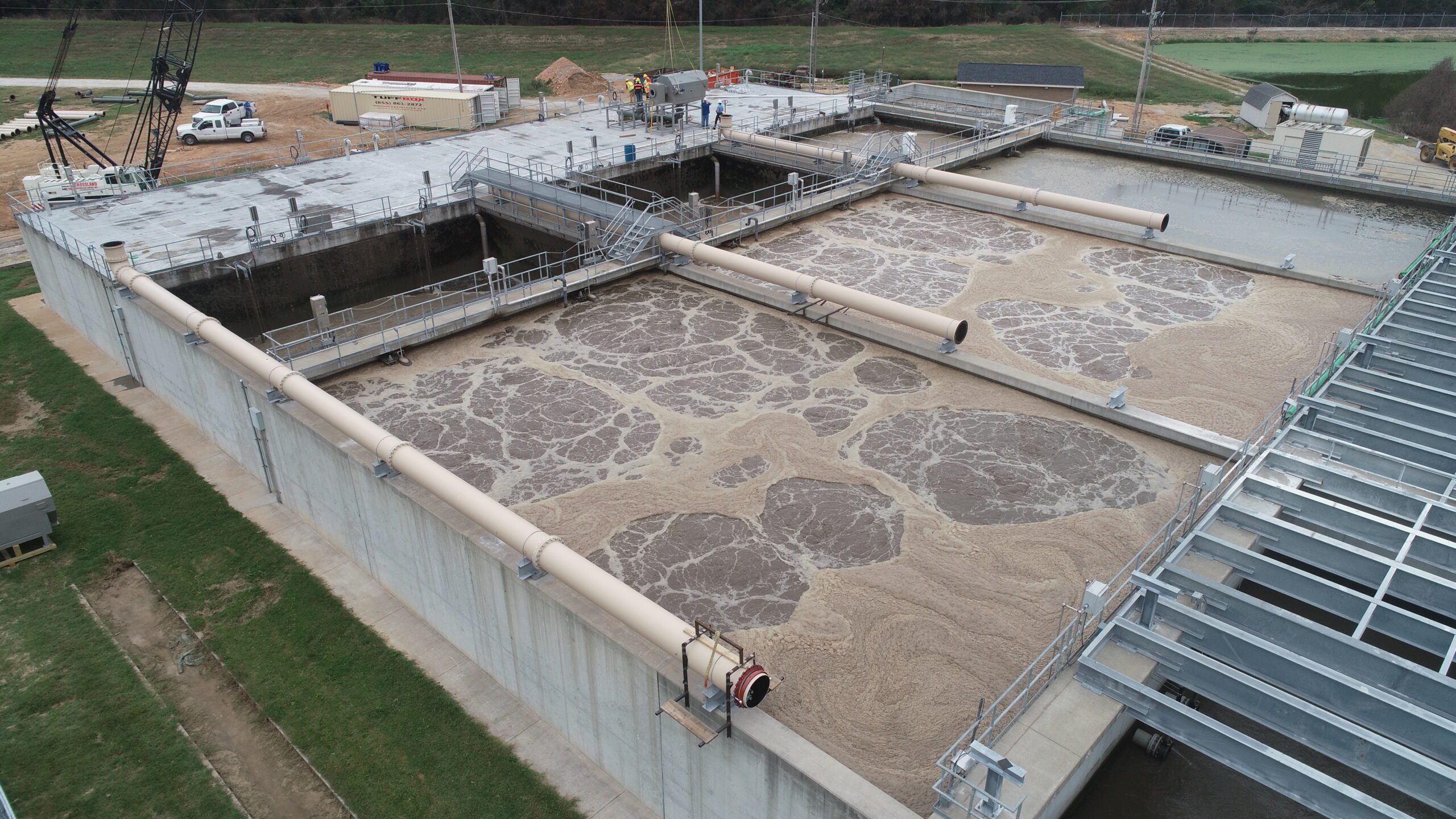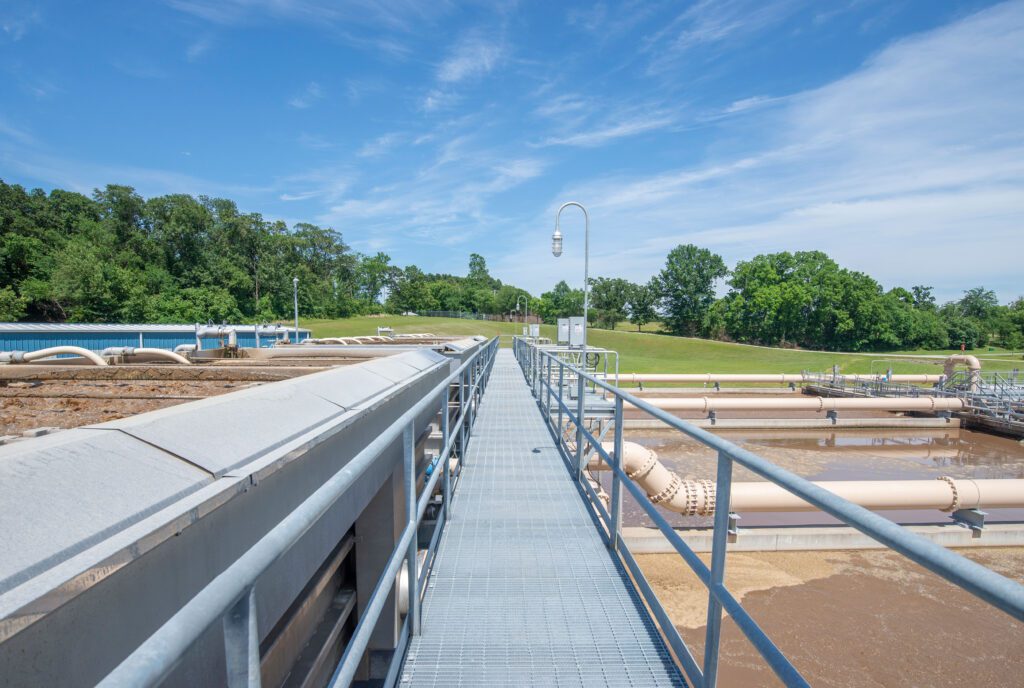News / Projects / Crossland Heavy
Community Health: Crossland Heavy’s Environmental Impact through Wastewater Infrastructure Construction
| 6 minute read

Q: What are the main environmental risks associated with inadequate wastewater management?

A: 1. Violation of a facilities National Pollutant Discharge Elimination System (NPDES) permit can result in excessive pollutant discharge into streams, rivers, and lakes. These excessive pollutants can cause health risks to swimmers, aquatic life and create excessive algae.
2. Sanitary sewer overflows allowing untreated wastewater to flow on to the ground and eventually into drinking water sources.
Q: How does Crossland Heavy’s improvements to wastewater infrastructure specifically address these health risks?
A: Crossland Heavy has constructed hundreds of miles of sanitary sewer lines throughout the Midwest, helping communities safely collect wastewater while reducing inflow and infiltration from groundwater taken on by aging infrastructure. Crossland Heavy has constructed and rehabilitated hundreds of wastewater treatment plants to help communities meet existing and, in many cases, more stringent NPDES Requirements, keeping our waterways clean and protecting the health of our entire ecosyste
Q: Can you provide examples of communities where Crossland Heavy’s wastewater projects have led to measurable improvements in public health?
A: We work with incredible Engineering Firms across the country who design each project with environmental health in mind. From brand new wastewater treatment facilities and lift stations to small treatment facilities or pipeline rehabilitation projects, each engineering design takes the needs of the community and the environment and meets them head on. As a unified project team, we have improved effluent quality, disposed of waste safely, and reduced groundwater infiltration on hundreds of projects throughout the Midwest. We look forward to every opportunity where we can collaborate with engineering teams as they develop the design to improve a project’s safety and constructability and to deliver a best value project for our owners.

Q: What innovations in wastewater treatment has Crossland Heavy constructed?
A: Wastewater technology is improving at a rapid pace, and permit requirements are constantly getting more stringent. When the City of Decatur, Arkansas needed to expand capacity at its wastewater treatment facility Crossland Heavy worked closely with the City, the design engineers, and regulators to choose the best treatment option. Most of the research pointed to adding infrastructure to the existing SBR plant to increase capacity, which would be a large, expensive undertaking. However, there was one innovative idea that would allow the plant to more than double its capacity while adding very little infrastructure and for less cost overall. Together with the Design-Build team, the City of Decatur chose to rise to the challenge of becoming the first wastewater treatment facility in Arkansas to convert to a membrane bioreactor (MBR) facilit
Q: How does Crossland Heavy work with Owners and Engineers to ensure that its wastewater projects are sustainable and environmentally friendly?
A: To provide an example specific to our Northwest Arkansas market, many utilities in the area are looking to advanced technologies to produce a Class A biosolid which can be sold and used as fertilizer. Crossland Heavy recently worked with the City of Bentonville to install new in-vessel composting equipment. This new equipment replaced the existing windrow composting facility which required significantly more real estate. The city also accepts yard waste from its residents and mixes it with the biosolids to produce a sustainable and environmentally friendly end product, which ultimately is applied back into the land as fertilizer to crops in the surrounding area.
Q: What are the economic impacts of investing in modern wastewater systems for municipalities?
A: Modern wastewater systems allow communities to grow in ways that provide a safer and cleaner environment. Water and wastewater treatment along with roads are the foundation that provides for economic development and a better quality of life. Many communities are unable to grow because they do not have the sewer collection and treatment infrastructure in place to facilitate growth. With suitable sewer collection systems and treatment facilities in place, communities can rest assured that their waterways are clean so wildlife can thrive, and the environment can support the health of the entire community.
Q: How does Crossland Heavy work with local governments and health agencies to tailor wastewater solutions to specific community needs?
A: Crossland Heavy and our owner and engineering partners work with the Corp of Engineers, EPA, DEQ, Health Departments, and other state and federal agencies regarding permitting, constructability, sequencing of construction etc. to keep state agencies abreast of design and construction progress through the life cycle of the projec
Q: What challenges does Crossland Heavy face when upgrading old wastewater systems, and how are these overcome?
A: Wastewater can create an aggressive environment when facilities face deteriorating conditions for prolonged periods of time. Construction conditions in these situations are often challenging. Crossland Heavy always takes additional safety precautions for work in challenging, deteriorated conditions, and we work with engineers, subcontractors, and suppliers to determine the best solutions for each repair, upgrade, or expansion to an existing facility. Crossland Heavy implements thorough MOPO plans, communicates daily with plant staff, and properly sequences activities with the engineering teams to overcome these challenges.
Q: What role does community engagement and education play in Crossland Heavy’s wastewater projects?
A: Community engagement and education are very important for wastewater infrastructure projects. The majority of people do not know what happens to the wastewater that leaves their homes and, therefore, do not understand the reasoning behind large projects and their subsequent rate increases. Helping the community to understand the need for the projects, the benefits of these projects on their environment, and the costs associated can raise public perception of the project and lessen the kickback of a rate increase. During construction it is also very important to keep the community around the project site informed of construction progress, so they can be prepared for additional traffic and noise increases during construction hours and can anticipate the end date. Crossland Heavy takes all precautions to limit our impact to surrounding neighborhoods as much as possibl
Q: Looking forward, what new developments in wastewater treatment is Crossland Heavy excited about?
A: With each new regulation that the EPA publishes, our communities grow healthier. Technology advances at a rapid pace, providing new, innovative technologies for us to learn about and construct, making all of our inner nerds so excited for the future! As Community Builders, our primary goal is to make our communities even better places to live, and wastewater collection and treatment is a major piece of the foundation for health, prosperity, and quality of life for every community. We eagerly await each opportunity to strengthen our communities’ foundations.
Latest News
Looking for More?
MOmentum Bike Park Opens in Joplin: New 95-Acre Destination Built by Crossland Civil Division
Honoring Our Veterans: Army Veteran Zachary Smith Reflects on Service and Life at Crossland
Building Careers from the Ground Up: Crossland’s 2025 Apprenticeship Graduates

